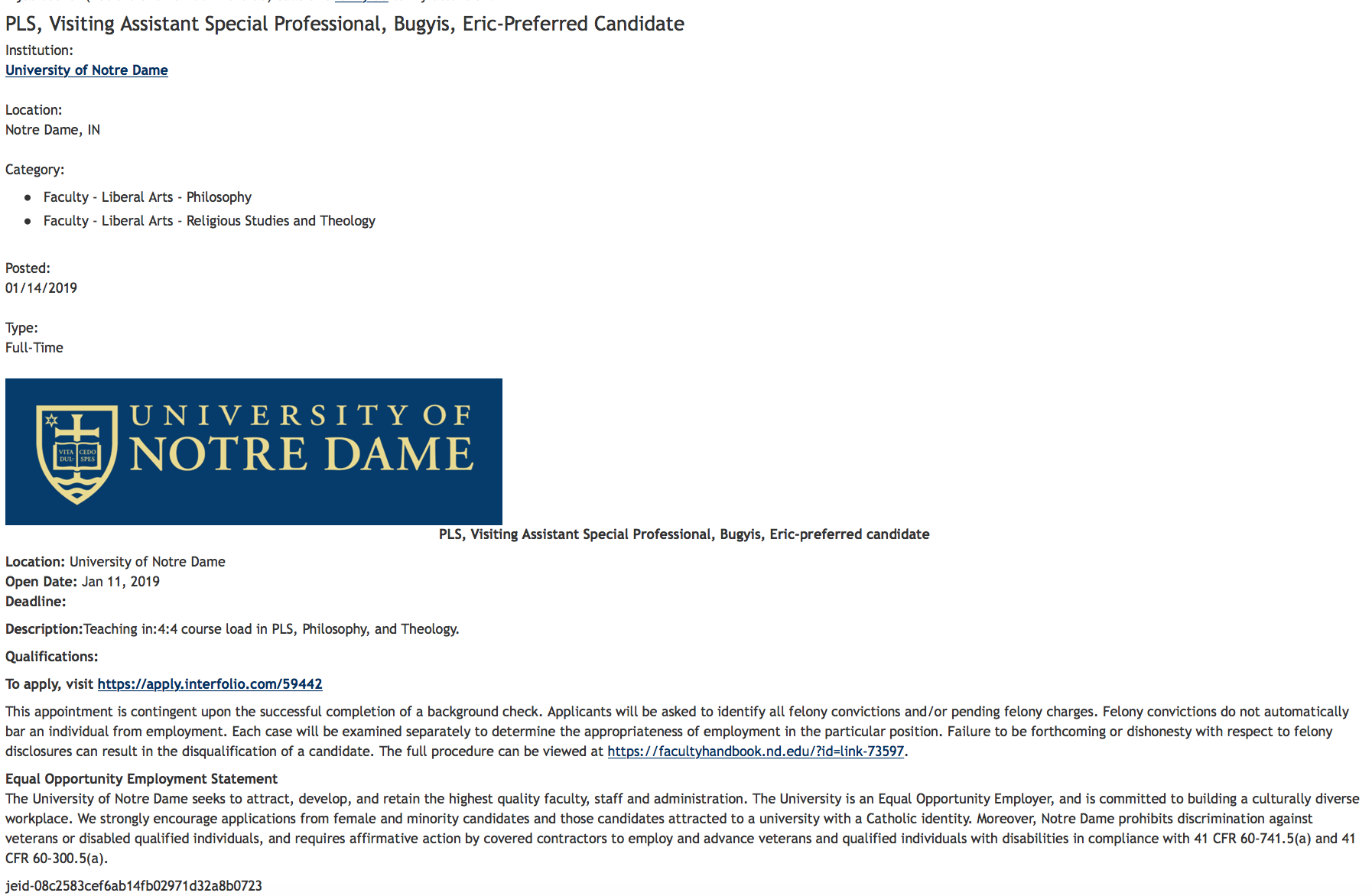You have /5 articles left.
Sign up for a free account or log in.

Oops. Two job ads from the University of Notre Dame were accidentally posted online this month with the names of the preferred candidates in the job title. The ads were widely circulated on social media -- along with academics’ horror stories about having applied to supposedly open searches, only to discover well into or after the interview process that the position was always going to go to an internal candidate or spousal or other preferred hire.
Notre Dame discovered the error this week and had the ads -- one for a visiting assistant special professional in the program of liberal studies and one for a visiting research assistant professor of engineering -- removed.
Dennis Brown, a spokesperson for Notre Dame, said Wednesday that the university has since apologized to those named in the job titles. He attributed the error to a vendor responsible for posting ads to job sites. That vendor did not immediately respond to a request for comment.
Brown also said that the searches were not open in the first place, despite many Twitter critics’ suspicions about sham searches. He declined further comment, including questions about how Notre Dame handles open searches when there is a preferred candidate.
Neither preferred candidate returned a request for comment.
Elizabeth Catte, a public historian who shared some of the now-deleted posts on social media, said in a direct message on Twitter that it doesn’t matter whether these specific searches were open or not.
What’s it is important, she said, is “that the ghoulishness of fake academic interviews resonated with so many people and specifically those who had experience with Notre Dame.”
The Notre Dame situation aside, do sham open searches really happen?
A faculty member at a small, private institution who has sat on academic search committees but who did not want to be quoted by name, given the sensitivity of the issue, said he “wouldn’t go so far as to say very many such searches are full-blown charades.”
Yet, he continued, “I do know of a number of searches in which a candidate was preferred from the get-go and other candidates would have had to get over a very high bar to prevail or, alternatively, the preferred candidate would have had to soil himself.”
Based on “my limited experience, I’d say it’s not common, but it isn’t very rare, either,” he added.
Another faculty member at a large public institution said open searches can indeed be a charade.
The professor said he was upset to discover a job he’d once interviewed for had gone to an internal candidate, and that “it's frustrating when you feel like your time and trouble is just window dressing.” At the same time, he said, if a search has a target, “it's better to have a real search process rather than just giving the job to Dr. Inside.”
Here is one of the ads, which the blog Leiter Reports captured before both were deleted.






